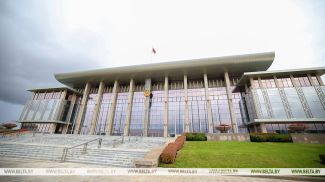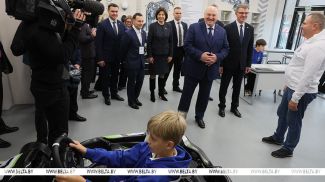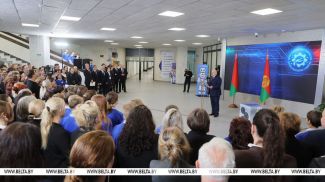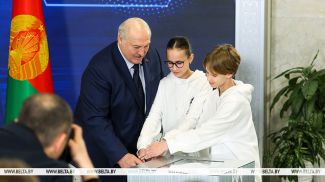BRAGIN, 26 April (BelTA) – Belarusian President Aleksandr Lukashenko took part in a commemorative meeting on the occasion of the 35th anniversary of the accident at the Chernobyl nuclear power plant in the town of Bragin on 26 April, BelTA has learned.
The head of state recalled that the Chernobyl accident was recognized as the largest man-made disaster in the history of mankind. It has affected more than two dozen countries, but the major fallout landed on Belarus. “Today, 35 years after the tragedy, we gathered here, about 46km away from the site of the explosion, to honor the memory of the heroes who saved the European region from an even greater tragedy," Aleksandr Lukashenko said.
Among such heroes, the Belarusian leader named Vasily Ignatenko, a native of Bragin District. "He went down in history as a commander who showed a personal example of courage and bravery in performing a difficult combat task, as a strong-spirited man who, despite his burns, saved his comrades," the head of state noted. Thanks to the coordinated actions of Ignatenko's unit, the fire on the roof of the 4th unit was completely extinguished. The commander of the unit was posthumously awarded the title of Hero of Ukraine.
"Remembering Vasily Ignatenko, we pay tribute to the feat of firefighters, military, medics, scientific and technical staff of the plant. Those who fought fire at the cost of their lives, provided first aid at the accident site and erected a protective sarcophagus," the president said. He recalled that among the Chernobyl cleanup workers were 115,000 Belarusians.
"The feat of Chernobyl heroes shook the world. It is not about the fact that these people worked to the limit of their abilities and did everything to minimize the threat. It is that they knowingly sacrificed their lives for others,” Aleksandr Lukashenko stressed. “They knew that they would have to work in deadly radiation, that a risk of another explosion was great. Yet they went to the site and did their job. Without doubt and fear, in a single formation, helping each other, as the Soviet people always did."













